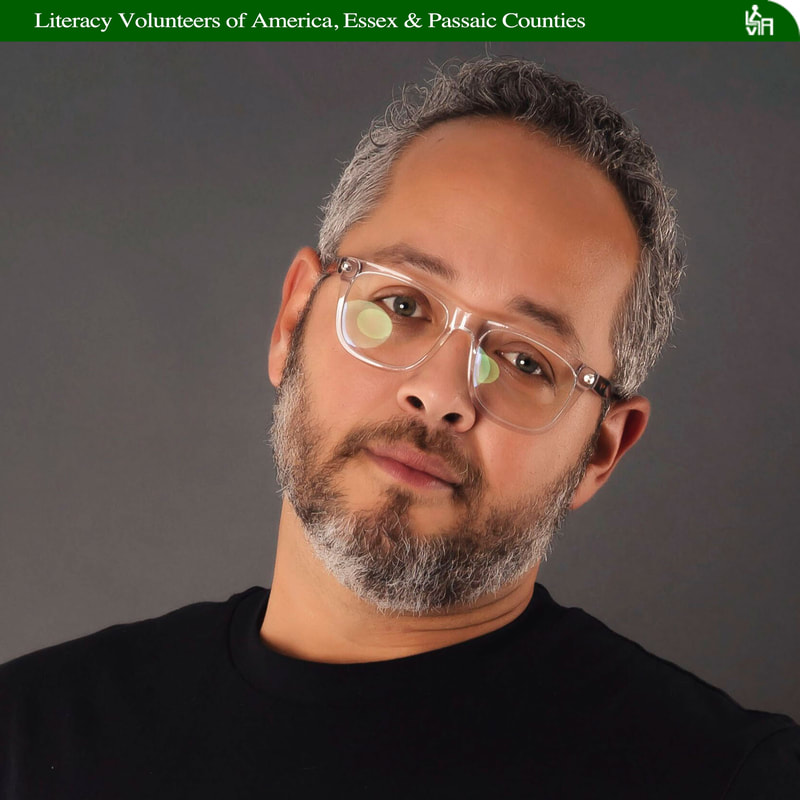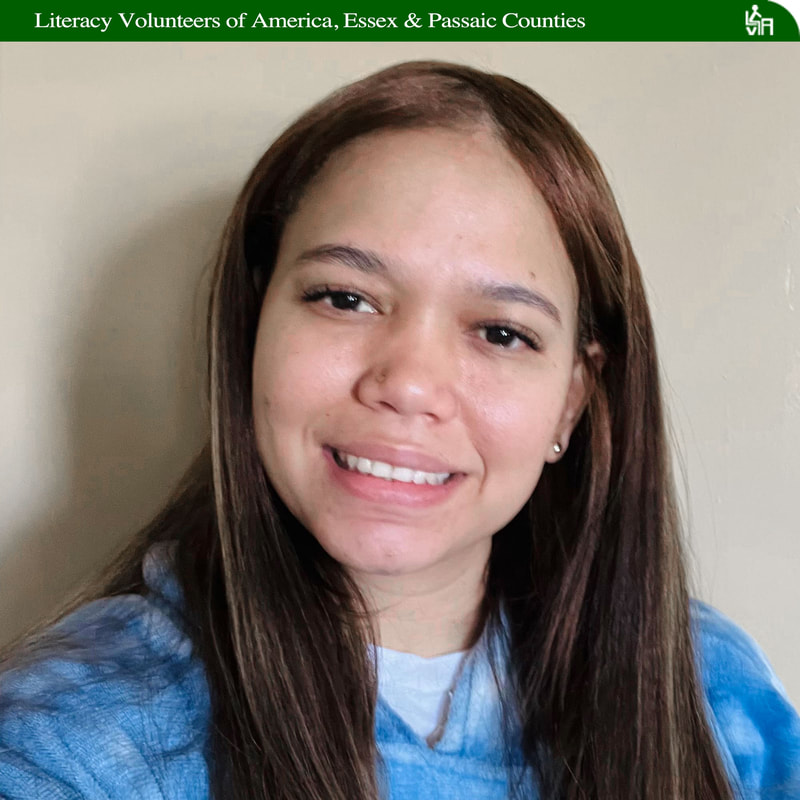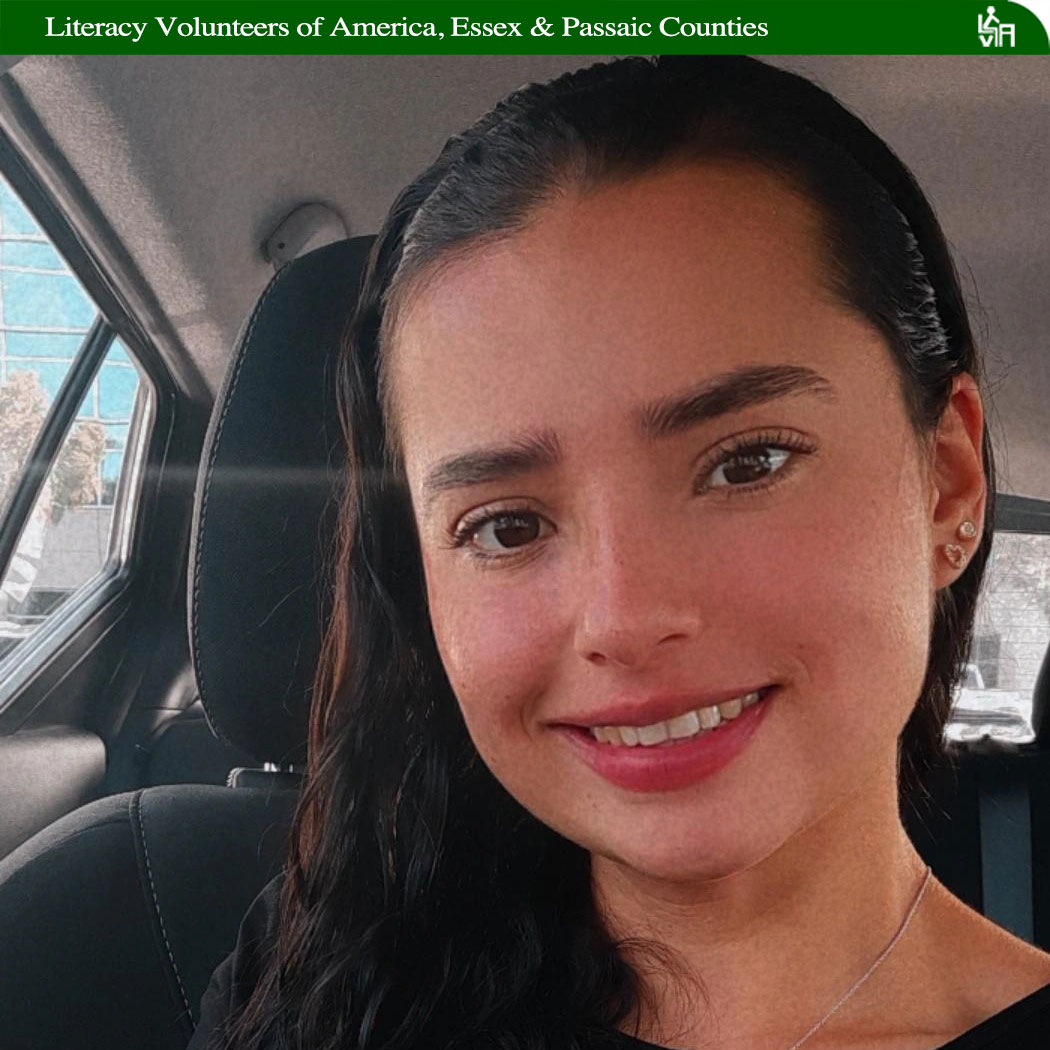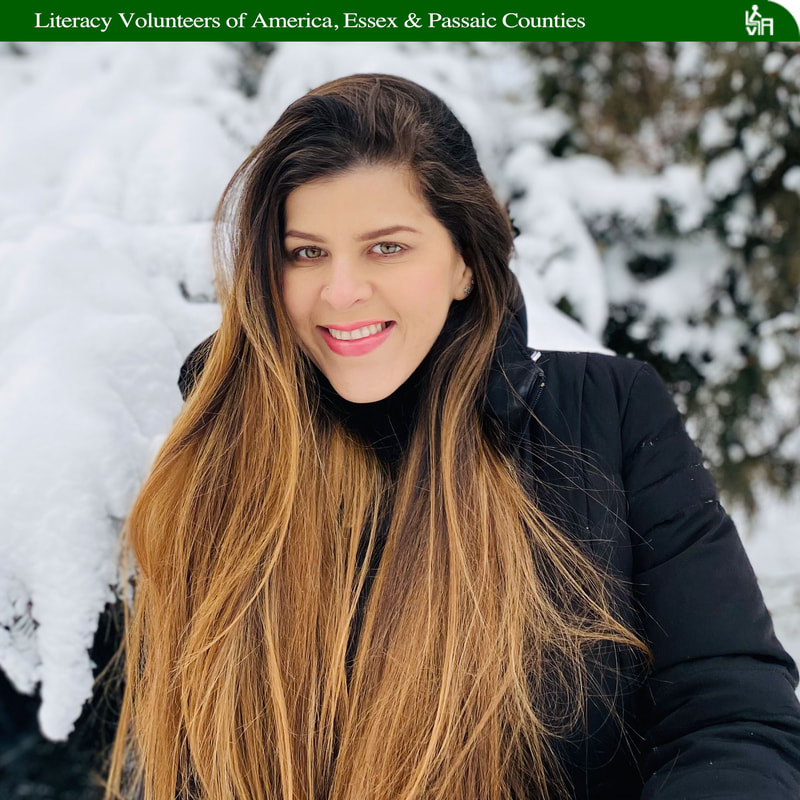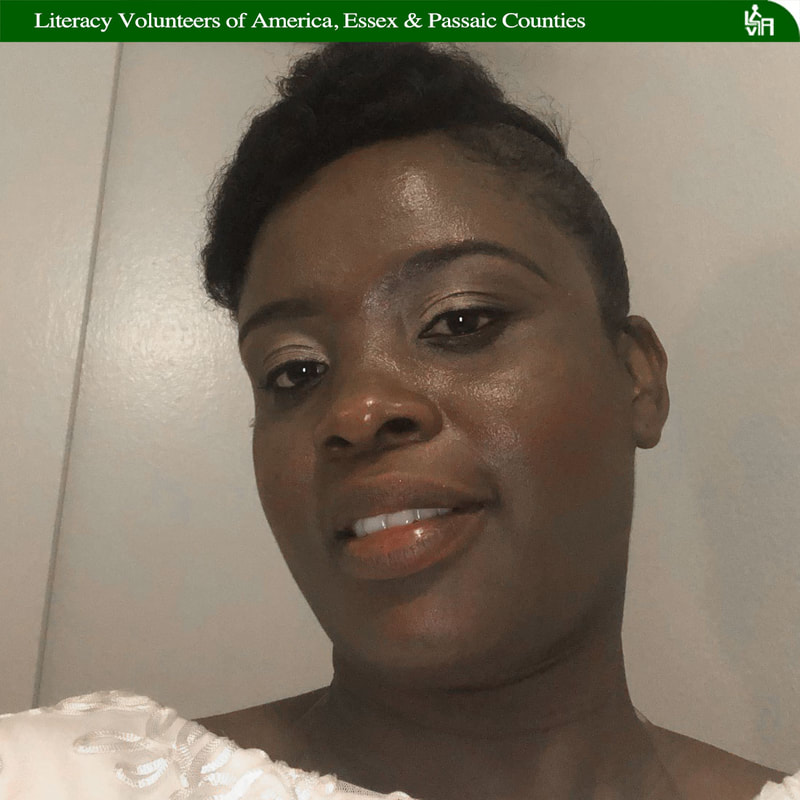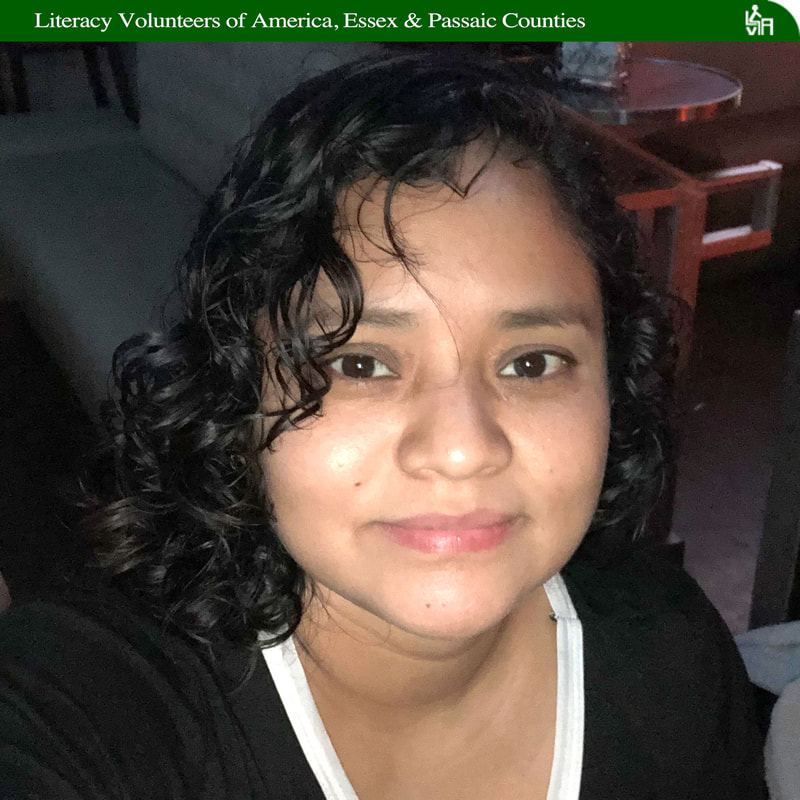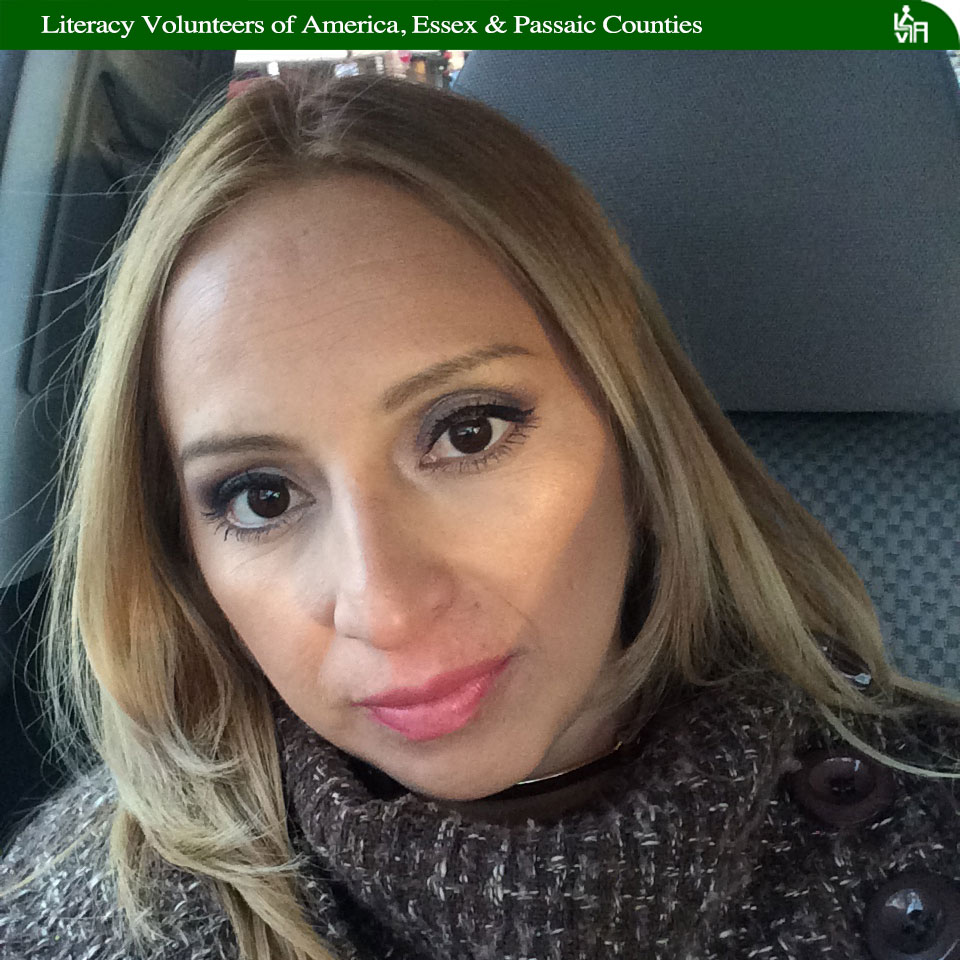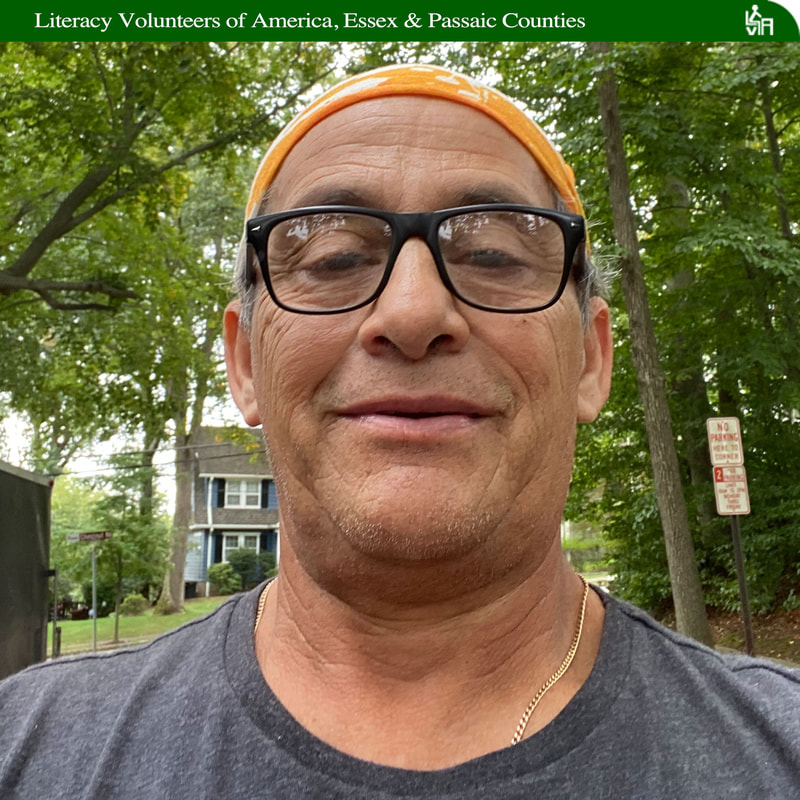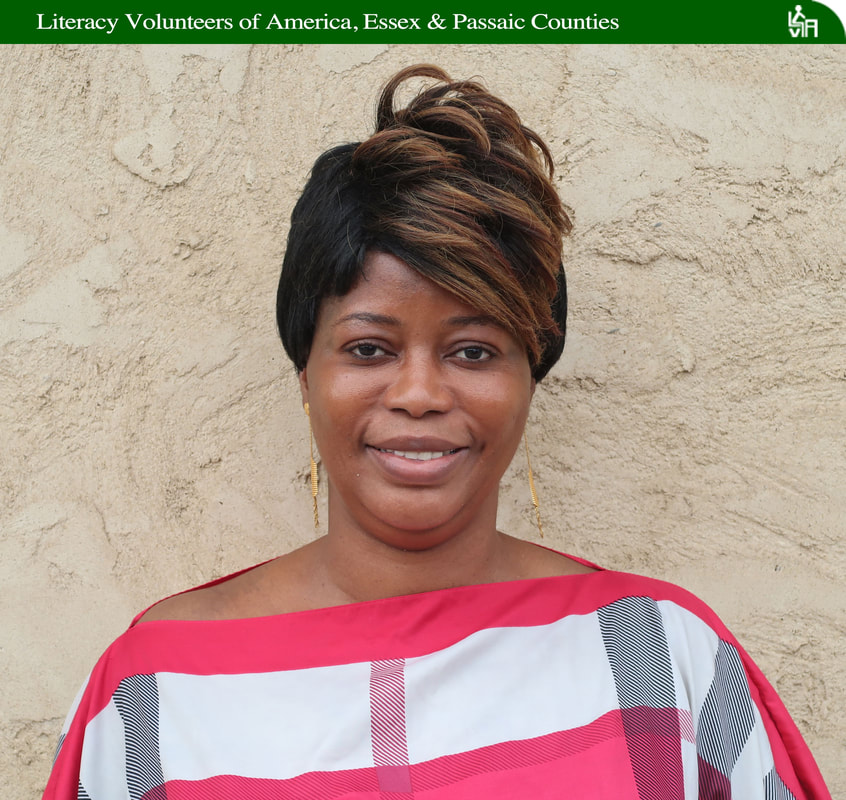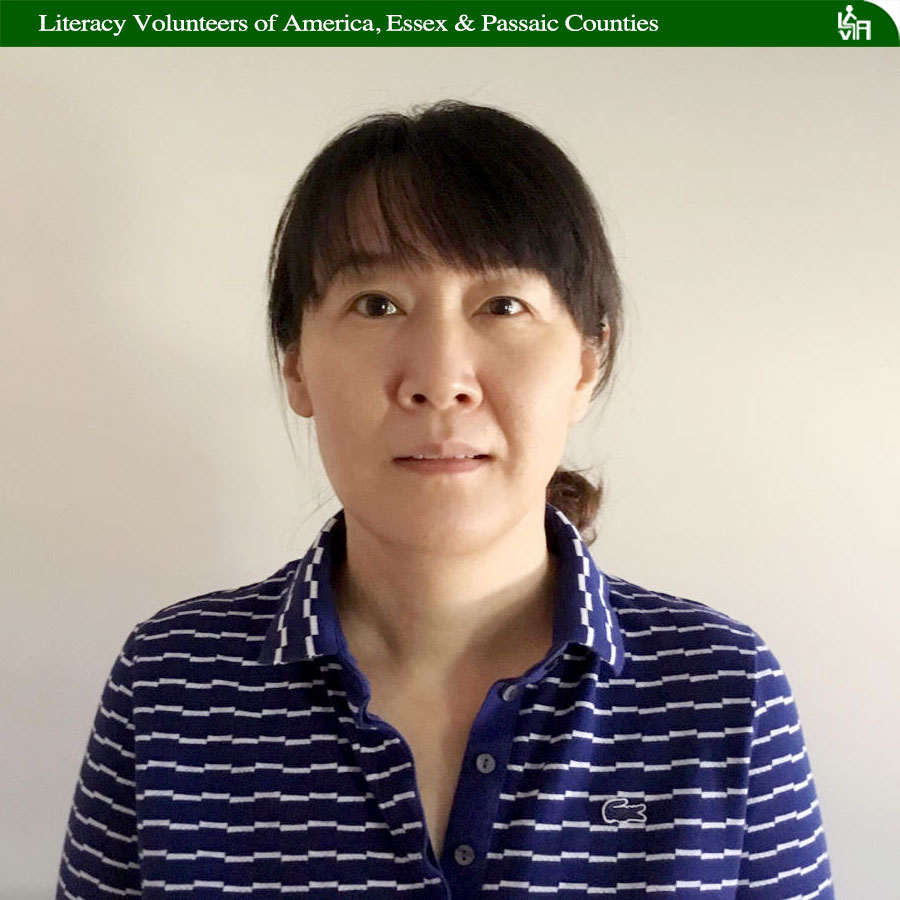Students' Success Stories 2020-21
We all enjoy success stories. They are positive messages about overcoming obstacles, working hard for the reward, and finding satisfaction in completing challenges. Read about the students who have obtained citizenship, those who escaped war torn countries and now have assimilated into American society and absorbed our culture, and those who finally read a bedtime story to a young child or grandchild. That last achievement has a special significance for a Basic Literacy student after a lifetime of frustration and low self-esteem. Here at Literacy Volunteers of America we like to celebrate all those positive events in our students’ lives. Sometimes we celebrate with hugs and treats, but most often, we share these achievements with others through this page on our website. That way all of our LVA community can share in the celebration of their success!
CarlosTwo theater producers of Saturday Night Fever were chatting one day about the urgent need to hire a costume designer, as they prepared to launch the musical drama in the Dominican Republic’s bustling capital.
“I said ‘I can do the job’,” recalled Carlos, then a Saturday Night Fever dancer who overheard the pair. Carlos made a living performing in Santo Domingo musicals and flashy productions like the Miss Dominican Republic beauty pageant. He had no fashion show portfolio necessarily but he spent his youth sewing and designing patterns, skills he’d learned while working alongside his mom. “They said ‘Are you sure’?” Carlos explained. “One week later I presented a folder with my work and I got the job. That was the beginnings.” Hairspray, Legally Blonde, Godspell and other shows followed, earning him a reputation as a designer capable of quickly producing 300-400 wardrobe pieces per show. “Musical theater gave me a lot of skills and made a lot of people recognize my work and my name in my country,” he said. The middle-born of three children, this native of the Dominican city of Mao, Valverde earned a bachelor’s degree in advertising and a master’s in visual arts in his country. As his fashion business grew, he traveled to Italy, where he studied at Istituto Marangoni, a private school of fashion and design in Milan. Later still, he would present his collections in fashion shows and on other display stages all over Latin America and in U.S. cities like New York, Chicago, Miami, and Anchorage, Alaska. You can view some of his creations on his website: https://carlosdemoya.com/ or via Instagram @CarlosDeMoya Sidelined by the pandemic and its devastating effect on the live fashion industry, Carlos spends much of his time today studying English with tutors Bob Bounczek and Jennifer Fidlon-Bugat. He continues to sell his designs to his principal clients in the Dominican Republic, designs uniforms for a Dominican airline, and still draws every day, which he calls his “therapy”. He enjoys reading, visiting museums, and spending time with his four Yorkshire terriers – “Yorkies” which he jokingly says comprise the total size of one golden retriever dog. Carlos, who spent 14 years teaching at a Dominican Republic college, today works as a teacher at Children’s Art & Science Workshops in New York, a non-profit organization that engages at-risk youth and grooms them for success. “One year ago, I couldn’t do that,” he said of the city teaching job. “But now I can speak in English and Spanish.” |
SoniaWhen she’s not in language class for six hours each week, Sonia learns English by watching Netflix … in Korean.
That’s right, this Dominican Republic native is a huge fan of Netflix K-dramas, using English subtitles to strengthen her vocabulary and comprehension as she views shows in their original Korean dialect. She easily recites trivia behind series like “Crash Landing on You”, in which a South Korean heiress accidently parasails across the border into the communist north. There the heiress falls in love with a North Korean army captain who hides her in order to help her evade arrest and prison for illegal entry. “Did you know that the actors are married in real life?” she asked, referring to the series stars, Hyun Bin and Son Ye-jin. Actually, we didn’t. But Sonia draws the line when it comes to thrillers like “All of Us Are Dead” or “Train to Busan,” which are favorites among K-horror fans. “I don’t like zombie movies,” she explained with a good-natured laugh. Besides her television streaming, Sonia’s found English help through willing practice partners like her U.S.-born husband and sister-in-law. She even speaks nothing but English to her 10-month-old-niece, whom she babysits during the day. And she receives guidance in the ESL class she recently joined with teacher Leslie Gersho, who described Sonia as an attentive student who follows instructions well. Sonia, the second-born of five children, hails from Santa Cruz de Mao, also called “Mao, Valverde” for its province or just “Mao”, the largest city in the Dominican Republic’s northwest. There, she completed high school and was a pre-med college student for two years. In the U.S., where she arrived eight months ago, she is studying for a medical assistant’s certificate at a Passaic County vocational institute. She eventually hopes to become a nurse. “I wanted to be a doctor but I didn’t finish” college, Sonia said. “My passion is assisting others.” She says she enjoys studying and, in her spare time, relaxing at home, shopping at the mall, and, especially, reading. “I read everything - comic books, history books, different books,” she said. “And I watch television, always in English, everything in English.” She attends Leslie’s online class which meets for three hours each session, twice per week. During our telephone interviews, Sonia spoke slowly and deliberately, but confidently, pausing occasionally while she thought of the correct word or expression to use. “I like writing and speaking but my pronunciation is very terrible,” Sonia said of her English skills. “It’s very difficult for me but I’m trying everything.” |
LorenaThere comes a point during her weekend job, after she’s scanned the last entry tickets for customers attending premier Spanish language performances, that Lorena can call it a night, sit back, and just enjoy the rest of the show. But she rarely does.
You might find that surprising, given that these shows feature well-known musicians, like Colombian singer Jorge Celedon, winner of the 2007 Latin Grammy Award for best Cumbia/Vallenato Album, who played before Pres. George W. Bush during a Colombian Independence Day event at the White House. And Marisela, the Mexican-American singer whose "Ya No" song peaked at number-one in the Billboard Latin Songs chart. But Lorena has other concerns, like getting home and getting some rest. After all, she has a weekday job too. And it’s one that the Colombian native labored to get - - as a medical assistant at Morristown Medical Center where she assists doctors, nurses, and technicians in blood work, echocardiograms and other procedures in a busy hospital laboratory. To get to this point, she poured over technical books and materials until she’d earned several certifications. “I studied for one year and passed the tests,” Lorena said, when asked about her journey. “Oh my God, I was so blessed. And so grateful. I didn’t feel that I fully spoke English, not fluently, but I did it. I did it!” And she’s not done. Lorena plans to enter the nursing field, starting as a certified nursing assistant. And she wants to achieve U.S. citizenship. Lofty goals, maybe, but, if you know Lorena, you know she’s capable. In the three-and-a-half years since she arrived in the states, she has obtained a driver’s license and permanent residence, as well as the hospital lab job. And, to be frank, she’s reached a pretty amazing level of English fluency. But don’t tell her that. Despite her previous ESL classes at Berkeley College and current sessions with our tutors, Lorena insists “That’s not enough; I need to study more.” Lorena grew up with two siblings in Santuario, a small mountain town in the Colombian department of Risaralda, a state known for its high-quality coffee. She graduated from high school, studied information technology in college and left Colombia for the U.S. in the summer of 2018. Her husband, Jaime, a naturalized U.S. citizen who grew up on her street in Santuario, was already here and she was eager to join him. Outside of work, she likes to jog, visit parks and the mountains, and spend time with her sister-in-law. She is reaching her goals one by one, she said, with the grace of God and unconditional support of her husband, her sister-in-law, whom she calls “my angel”, her family and closest friends. |
YeinerAs a one-hour deadline frantically neared, spine-tingling questions began to tear at Yeimy, a brand-new U.S. citizen who last December rushed from her swearing-in ceremony in Newark to her appointment at a Connecticut passport office.
What if police pulled her husband over for speeding, delaying them indefinitely, wondered Yeimy (pronounced “Jaime”.) And could her new passport really be issued the same day, for an additional fee, and not the next, when she was scheduled to fly to her native Heredia, Costa Rica, for the holidays? She’d already postponed her flight once in order to attend the federal ceremony. “My husband drove like crazy,” Yeimy, a literacy student, said as she recalled the events of the day with some still-nervous laughter. They’d left Newark at 10 am, after Yeimy and other new citizens took the oath, received their certificates of citizenship, recited the Pledge of Allegiance, and sang the Star-Spangled Banner. She and her husband arrived in Connecticut at 11:10 am, five minutes before her appointment. A couple of hours later, she left with a U.S. passport. “We didn’t even have time to take a photo in Newark,” she said. “Later, I saw a building in Connecticut and I told my husband ‘I think this is the perfect spot for my picture.’ It was a special day.” Yeimy passed the citizenship test in November after studying mostly on her own, and with support from her tutor, Mary Kao. “I right away sent Mary a message, saying ‘Mary, I did it. I did it!’,” Yeimy said. “That was so exciting,” said Mary. “She was studying on her own and she got all the information with the 100 (test) questions and answers. She memorized every one of them. She understood it and she was right on the ball. When she wants to get something and she’s determined, she’ll do it. She’s terrific. She really is.” Citizenship was only one of the goals that Yeimy set for herself in her adopted country. She’d earned a state driver’s license years earlier and she hopes to earn a license to practice cosmetics, as she did in Costa Rica where she worked as a hair stylist. But becoming a citizen was still an important goal and it was the highlight of a particularly tough year for Yeimy, who spent much of it battling cancer. She received chemotherapy treatments and Brachytherapy, a type of internal radiation care, in Costa Rica where doctors eventually declared her cancer to be remission. “I was so happy and my family too because it was a hard time for us. When I started to get my treatment I was very positive, nothing negative,” she added. “Never give up.” |
MarieMarie would be more than pleased if the new year brought prospects of an office job, putting to use the economics college degree she earned, and sales experience she had, in her native Haiti.
Or at least an office job. For now, the Port-au-Prince native works the night shift as a stock clerk in a furniture warehouse, goes home mornings to prepare her 9-year-old daughter for the day, and then often attends a two-hour morning English class. But Marie, who has gained a reputation for being a hard-working literacy student, could get there yet, if work ethic and study are truly indicators of success. “She’s a go-getter,” said Olga Roberts, one of Marie’s two tutors. “Her reason for learning English is she wants to get promoted and wants to get a different job. She’s big-hearted and she’s a hard-worker.” When we first spoke with Marie last month, she was looking forward to the Christmas holiday and, finally, some time off from work. She planned to attend a small gathering with her daughter, parents, and brother. Her husband, who was working in Haiti, couldn’t be there. She was also preparing for a job interview. It was at her current company. And she was excited but nervous. “I have an interview for a job in administration, working on a computer in the office,” she explained. “That’s why I applied for it. But I’m scared because of my English.” Her fear couldn’t be based on a lack of preparation. She’d taken ESOL classes at a library in Maplewood, studied online weekly with two different tutors, and watched hours and hours of television in English. She’d read English language books, chatted with U.S.-born colleagues, and practiced with her daughter. If, in her reading, she comes across something she doesn’t understand, Marie said she writes it down and later gets clarification in class with her tutors. “They’re wonderful,” she said of them. Olga, her tutor, described Marie as someone who has a good sense of humor and is shy, often shunning praise about her progress. But she is advancing. “She reads very well because part of my class is reading and writing,” Olga said. “If she doesn’t understand something, she tells you.” Later in the month, when we chatted with Marie again, she said the job interview went well but, alas, she didn’t get the position. Still, she seemed upbeat. And the year is young. “I’m very happy because I tried,” Marie said. “When you try for something, sometimes you lose and sometimes you win. At least I tried.” |
NydiaIt’s been a long road for Nydia, one that passed through the hard scrabble factories of her native Guatemala City where she labored to produce casual clothing for Old Navy and Gap stores, as well as tuxedos for an upscale men’s clothier.
She landed in New Jersey where she now cleans the homes and offices of three doctors. That’s pretty physical too but, as Nydia proudly puts it, “I work for myself.” It was a long time coming, she said. “When I arrived I did housekeeping in a hotel for a long time, about six years,” Nydia explained. That was 14 years ago. “Then I worked for a company cleaning houses and offices. And right now I’m on my own.” Along the way there were English and GED classes to attend, two cats to care for, a calico named Ginger and a tuxedo called Oreo, and two U.S.-born daughters to raise. The eldest, a 12-year-old, has managed to learn Spanish; the youngest, a 9-year-old, refuses to. “All the time, my youngest daughter says ‘I don’t need to speak in Spanish. I don’t want to learn.’ But if I speak just English with them they won’t learn Spanish. My point is if they have the opportunity to speak two languages it will be better for them.” The third-born of 10 children, Nydia was mainly raised by her grandfathers in Guatemala City, or “The Capital,” as she calls it. She dropped out of school in the sixth grade when her family could not meet the new school fees. “They didn’t have a lot of money to give me for school,” she explained. But she’s nowhere near finished. In the states she’s taken several ESL classes and is also studying for her GED, having recently enrolled in a preparation class in Spanish. She joined LVA three years ago and studies with two tutors via Zoom and Google Meet video platforms. “She’s persistent,” said Katherine Andersen, one of Nydia’s tutors. “I would say that she’s very engaged, she comprehends very well, and has good reading comprehension skills.” Nydia described her sessions as helpful. “It’s really a good program,” she said of LVA. “It’s helped me extend my vocabulary and comprehension. When I started the program, I didn’t understand anything., only some words. I didn’t speak like I do now.” Nydia likes to walk, bike, practice her typing and watch English language movies and language instruction videos on YouTube in her spare time. She plans to spend a quiet Christmas at home with her family, playing chess and table games like Connect Four and maybe Monopoly, if she buys the game. “When I was younger, I played Monopoly in Spanish,” she laughed. “I loved it.” |
FernandaThose early days, when Fernanda arrived in the states from South America, were the hardest, even when held against the severity of the pandemic.
You see, there wasn’t much opportunity to learn English in Chimborazo, the province in the central Ecuadorian Andes where Fernanda was raised with six siblings. So, she struggled. “The first year was very, very difficult,” Fernanda explained. “When I went to the doctor with the children, I didn’t understand the doctor. Wherever I went, I didn’t understand many people.” But that didn’t last. She enrolled in a beginner’s English class at a Kearny church not long after her 2012 arrival, then another at a Kearny library, then finally one at LVA. Progress, naturally, followed. “It’s easier to speak with other people now,” she noted. “I make calls, I make appointments, I am learning.” Olga Roberts, one of her tutors until last month, described Fernanda as a good student who contributed to her online group class, despite a demanding and sometimes interfering work schedule. “She has improved,” Olga noted. Fernanda first worked a grueling 10 pm to 6 am shift at a local McDonald’s restaurant, where she compensated for her lack of English with the help of menu visuals. “I was cooking, cleaning, making sandwiches, I learned everything,” Fernanda said. “It was good for me because everything was in English but they had pictures. Always I had pictures.” Next, she began watching children of working parents from her own home which she did for seven years. Then, just last month, she was hired as a full-time assistant teacher at a daycare center and after-school program. “It’s good for me,” she said of the new position. “I like working with children and I have experience. And I’ll be required to speak both languages because the other assistant teacher only speaks Spanish.” When she’s not working or studying English, Fernanda enjoys spending time with her daughter, age 17, and two sons, ages 15 and 3. Along the way, she found the time to earn a state driver’s license. She’s also a fitness enthusiast who works out three or four time per week and has her sights set on gaining a certificate in personal training. As soon as her program moves from online to in-person classes, she said she plans to enroll and learn all she can about cardio fitness, weight management, and nutrition. “That’s the next step,” she laughed. |
WalterIt’s been more than a decade since Walter launched his landscaping company and, as the firm grew, so did the demand for good English skills.
“I only speak to two customers in Spanish,” said Walter, a former bank cashier from Guatemala and the only English speaker in his current company. “For me the problem is vocabulary,” he said. “Now I speak English with my customers. But a lot of them are just, ‘Hi, how are you’ and that’s it.” That’s helpful, for casual chat, but it falls shy of the language skills needed to run a business, tasks like writing correspondence to attract new clients or completing complicated business forms. Practice time at home is also limited. “When I try to watch the news in English or put on a movie in English, my wife says, ‘No, no, no, put it on in Spanish,’ ” he said, adding, “When she’s happy, I’m happy.” So, after some 30 years in the U.S., Walter enrolled in literacy classes where he enjoys good working relationships with two LVA volunteers. “I think he recognized that for him to really continue to get ahead with his job, to promote his business, and to be able to find new customers, he’s got to overcome that language barrier,” said Paul Weissenberger, one of Walter’s tutors. “Walter is extremely hard working,” he added. “While working on his job he takes the time to come into class, completes his homework, and is very diligent. Just a great individual.” Walter, the youngest of three sons, was raised in Guatemala City. He completed high school there and attended two years of college, majoring in business, before moving to the U.S. Here, he and his wife raised two daughters, and they enjoy spending time with their three grandchildren. He spent 18 years working as an employee of a landscaper, before accruing enough private clients to start his own firm. “Every week I had more customers and didn’t have time,” he said. “Finally, I talked to my boss and I quit.” All in all, it allows him little time to himself but he’s never regretted the move. “Running your own company is a lot of work but I’m proud of being a business owner,” Walter said. |
MariamMariam recalls a joyful childhood - warm and pleasant times spent with seven brothers and sisters in Abidjan, a city in the West African nation Republic of Côte d'Ivoire, or Ivory Coast.
She’s multilingual, a fluent speaker of her native Mandingo, French and English. But a regret that’s followed her from child- to adulthood, is her sacrifice of formal schooling in order to help out at home. “I had good times but I didn’t go to school,” Mariam said. “That’s the one thing that I didn’t like. I wanted to know how to write and read.” Fortunately, for lifelong learners like Mariam, where you start is not so important as where you finish. To focus on reading and writing, she enrolled in LVA’s literacy program and hopes to end up with a career in public health. “I want to help people,” she explained. “People who are sick, old people, I want to help them. That’s why I want to be a nurse.” She also wants to be a U.S. citizenship. “She has a definite drive and focus, a goal for getting her citizenship,” said her tutor, Will Williams. “She pays close attention to detail, to getting some of these key words that are used throughout the citizenship test, memorizing those and being able to use them in a practical way. That’s definitely one of her strong areas.” Mariam arrived in the U.S. in 2011. She found work as a hairdresser but said that her inability to read and write flustered her efforts to find other types of employment. “I didn’t know how to read,” she said of her arrival. “I didn’t know how to spell my name. I can’t do a job if I don’t know how to read and write.” She’s not alone. Tests show that 41-percent of U.S. immigrants are in a similar predicament, arriving with low levels of English literacy, according to a Center for Immigration Studies report entitled Immigrant Literacy. The report cites statistics from the Program for the International Assessment of Adult Competencies (PIAAC). Again, that’s not where Mariam wants to end up. So when she’s not totally engrossed in raising her son, 14, you can find her with her books and lessons. And her crew. That’s a group of about 15 friends, all from the Ivory Coast, who plan monthly outings and parties. They’ve been to Atlantic City, Six Flags Great Adventure, Downey Park, and other area attractions. “For a long time, we couldn’t see each other, only in conference calls,” Mariam said. “But now we’re all vaccinated so we do barbecues, cookouts, we invite people who come and dance and have fun. We do baby showers, birthday parties, every month we see each other.” |
YanIt takes small steps to reach great distances, or so the saying goes, for demanding goals like language learning.
And Summer, an accountant from the industrial city of Tangshan in northern China, has taken her share of steep and difficult steps. There were encounters with supermarket staff who didn’t understand her heavily-accented English. And she was lost while listening to her literacy program classmates whose Creole French accents she found hypnotic but undecipherable. “That’s why it’s a hard life in America,” she said of her language struggles. “When my English gets better maybe I can get a job and do everything myself. Now, even the easiest thing for me is hard.” There’s also pressure from relatives back home who are concerned about her safety, given media reports of attacks against Asian-Americans. “My family are worried about me and ask me to come back,” she said. “They say America is not nice to Asians. But actually everyone is nice, everyone is friendly.” Back in her virtual classes, Summer now converses with her classmates. And that’s progress. “Now we can speak and understand each other,” she said. In fact, she’s anxious to meet them in person again as she had before the pandemic forced her classes to go virtual. “Even though the online class is very convenient, I’m looking forward to going back to the library,” Summer said. “People need to be social. I want to be social.” Summer followed her husband to the U.S. three years ago after he found work in a shipping company here. She arrived in the summer and quickly gave herself the season as a nickname, for fear that U.S. residents would have trouble pronouncing her Chinese name. She and her husband have a 16-year-old son who attends a local high school. In her spare time, Summer enjoys movies at home and she loves to go shopping. She studies online each week with two tutors, Diane Masucci and Terry Waters. She describes her pronunciation and conversation as “very bad” but, during a 30-minute telephone interview, conducted in English with few problems, she spoke deliberately and clearly. She said she only wishes that her husband and son, who are both fluent in English, would help her practice. “I remember I said to my son ‘If you don’t speak English with me, if you don’t like to practice English with me, I won’t cook for you,’” Summer laughed. “But my son studies very hard, and is very busy, and he doesn’t have time to practice with me.” |

